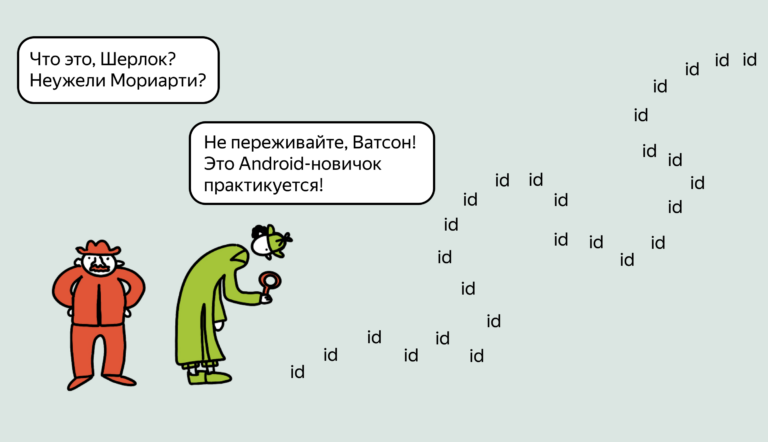You will definitely not remember all the meanings of these English words.

The most ambiguous word in Russian is “to go”. It has 26 basic meanings and even more than a dozen phraseological meanings.
But in terms of ambiguity, English has greatly surpassed Russian. It contains words with hundreds of meanings, and the record holder in this sense has as many as 645 definitions.
Today we are talking about just such words: what is their peculiarity from the point of view of linguistics, why there are so many meanings and what to do about it. Go.
When one word is not really one word
In fact, what we used to think of as different meanings of one word are formally different words in linguistics.
Homographs are words that are spelled the same but have different meanings. In grammar, they are often considered together with synonyms (words with similar meanings) and homophones (words that are pronounced similarly).

Most homographs are homophones as well – they are spelled and pronounced the same way. But there are exceptions.
There are homographs that are pronounced differently.
In Russian, most of these cases are words with different accents. For example, a lock (locking mechanism) and a lock (fortress).
In English, everything is much more complicated. Indeed, due to the pronunciation rules, words with the same spelling can be pronounced differently.
For example, desert. As a noun it is “desert”, and as a verb – “to leave, to leave.”
But in the meaning of “desert” it is pronounced as [‘dezət]…
And in the meaning of “to leave” – [dɪ’zɜːt]…
Not only different stresses, but also completely different vowel sounds. And there are quite a few such cases. Nouns and verbs are often pronounced differently, so be sure to pay attention to this.
But let’s not get too distracted from the topic. Our goal is the words with the most meaning. And if we speak linguistically correctly – homographs.
Disclaimer: Different dictionaries give a different number of meanings for words. We do not claim to be the only true position, but reflect the information given by dictionaries.
Run – 645 values
Simon Winchester, an American writer, linguist and researcher, conducted extensive research in 2011 on the word “run” and its meanings for the Oxford English Dictionary.
The results were impressive – it turned out that the word has 645 meanings. This is so much that the compilers did not even begin to include absolutely all definitions in the publication, leaving only 200 of them. But even in this form, the explanation of this one word took a full 32 pages of the dictionary.
So for today it is an unsurpassed leader. Let’s look at at least a few of its meanings.
I love to run in the park – I love run in the park.
He runs a very successful business. – It manages a very successful business.
Dr. Lawson wants to run some additional test. – Dr. Lawson wants spend additional test.
Don’t leave your car engine running… – Do not leave your car with working engine.
I always go for a 10k run in the mornings. – I always do 10 kilometers in the morning. jogging…
The play has had a successful run in the West End. – The play was successful in rental in the West End.
But there is good news for learners of English as a second – in most cases, the meaning of the word “run” is easily guessed from the context.
The only thing is, this does not apply to phrasal verbs with “run”. There are 74 of them in total, and it is often impossible to guess their meanings without precise knowledge. Remember only the most common 10 pieces, and as for the rest, a dictionary will help you.
Set – 430 values
This word has been the absolute leader since the very first edition of the OED in 1928.
Initially, linguists assigned a little over 200 meanings to the word “set”. But over time, the meanings became more. In the latest edition of the Oxford English Dictionary, there were already 430 meanings.
But the title has not yet been taken away from “set” officially. The next edition of the OED, where the meanings of “run” will be detailed in as much detail as possible, will not be released until 2037, and before that, “set” is still the word with the largest number of meanings in English. There is even a record about this in Guinness book of records…
Now a little about the values:
He brought a cup of tea and set it on the table. – He brought a cup of tea and set her on the table.
I’ve set the alarm for 7am – I established alarm clock at 7 am.
Have you set a date for the wedding? – You already decided with the date of the wedding?
I’ve bought new marble chess set… – I bought a new chess set from marble.
Now, look, we want to make it absolutely clear, that airport is not a film set… – So let’s be absolutely honest, this airport is not decoration for the film.
There are slightly fewer phrasal verbs with “set” than with “run” – only 25. But practically everything is used in colloquial speech. So you have to learn.
Go – 368 values
“To go” in English also has a lot of meanings. It is studied already in the very first lessons of English, but is limited only to the meanings of “go”, “go” and “go”.
And far fewer students know that go also means “die,” “scream,” “sell,” “sound,” “speak,” “receive,” and even “be pregnant.” And as a noun there are also “walking”, “move”, “decision made”, “portion” and “fashion”.
If the word “go” itself is studied at the Elementary level, then many of its meanings remain unknown until Fluent. Although even the vast majority of native speakers hardly know more than 40-50 meanings.
Now a few examples, both common and not so common:
I won’t go to middle school. – I will no more to walk to high school.
We need to go live now. – We must go out live right now.
His hearing is going, but otherwise he’s remarkably fit for a 95-year-old. – His hearing worsensbut on the other hand, he’s in surprisingly good shape for a 95-year-old.
Don’t try to eat the whole thing in one go… – Do not try to eat all at once in one time…
She’s always so full of go… – She’s always full energy…
By the way, there are 86 phrasal verbs with go in English. And that’s just the censorship.
Take – 343 values
In general, there is an understandable tendency in the English language – simple and common words have the greatest number of meanings, which, moreover, are often used precisely as verbs.
“Take” is exactly the same case. The most simple word that is included in the top 100 most important English lexemes, but it has a huge variability. This word has more than 70 translations into Russian alone, and even more complex semantic nuances.
According to Oxford English Dictionary analysts, “take” has only 20 meanings less than “go”. And also an honorable fourth place and a lot of very narrow and rather strange meanings. For example, “janitor’s kit” or “get in the picture.”
We all need to take responsibility for the response. – We all need to take take responsibility for retaliation.
Ladies and gentlemen, please take your seats. – Ladies and gentlemen, please to take their places.
The more answers we have, the less precautions we’ll have to take… – The more answers we get, the less precautions we have to take to undertake…
One cannot take up all issues at once. – You can’t in one fell swoop engage in all problems at once.
And since we count phrasal verbs for all words, then with the take token there are more than 60 of them. We will tell you about them in a couple of weeks.
Get – 289 values
Of the nearly three hundred meanings of the word “get”, the average student who is studying English comes across nearly a hundred. This is a very versatile lexeme, which is quite realistic to replace half of the English.
We recently wrote an article “5 phrasal verbs with get and their 33 meanings, or Why students don’t like English” and were greatly surprised by the variability of the word. And more interestingly, native speakers love to use it.
To understand the speech of an ordinary American, you need to know at least a couple of dozen of its meanings and a couple of dozen phraseological units with it. “Get” is in 34th place in the ranking the most frequently used English words in general and in sixth place – among verbs. So yes, it is really popular.
Now for some examples from the values:
When did you get the news about Sam? – When you learned news about Sam?
He went to the shop to get some milk. – He went to the store to buy milk.
Your coffee’s getting cold. – Your coffee cools down…
Why don’t you get Nicole to come to the party? – Why do not you to convince Nicole come to the party?
Some natives replace the word “get” with a good half of the vocabulary. So when traveling to the United States, it would be good to understand its capabilities. We don’t even mention learning all or at least half of its meanings.
***
Students who learn English as a second are surprised at the sheer number of meanings of some words. Because in most cases, it is not absolutely accurate knowledge of all possible meanings of a lexeme that is important, but the ability to understand its meaning from the context.
If you want to learn how to do this and not depend on cramming, sign up for a free trial online lesson with a teacher and learn English with pleasure.
Online School EnglishDom.com – We Inspire to Learn English Through Technology and Human Care

For Habr readers only the first lesson with a tutor in an interactive digital textbook for free! And when buying classes, you will receive up to 3 lessons as a gift!
Get a whole month of premium subscription to the ED Words app as a gift… Enter promo code june_21 on this page or straight in the ED Words app… The promo code is valid until 07/01/2021.
Our products:
Strengthen your speaking skills and find friends in conversation clubs
Watch a video of life hacks about English on the EnglishDom YouTube channel




